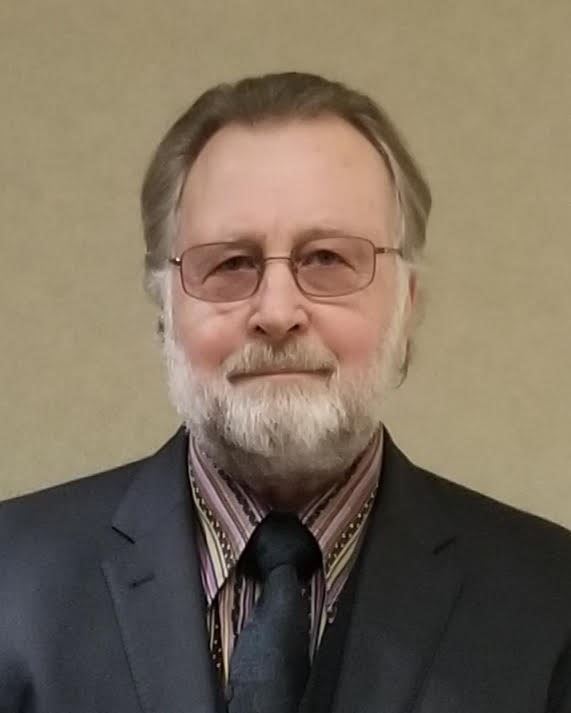
Friday, September 29, 2023
12:00pm Eastern time
Instructors: Mary L. Tracy, MA, PhD, MFT, BCN, QEEG-DL and Ronald Swatzyna, PhD, LCSW, BCB, BCN
Course Description:
The WHO estimates that more than 50 million people live with epilepsy worldwide. In the US alone, 1.2 % of the population or about 3.4 million people have epilepsy. The sole reason that an individual would normally receive a referral to a hospital or a neurologist for epilepsy screening is if someone has witnessed that they have had a motor seizure. However, it is not uncommon for qEEG professionals to detect isolated epileptiform discharges (IED’s) during routine EEG assessments in the absence of a history of motor seizures. Almost all isolated epileptiform discharges can be contributing factors to neuropsychiatric presentations with cognitive, emotional, or behavioral symptoms like ADHD, ASD, psychosis, and emotional dysregulation. Along the lines of psychiatric medication management, one of the presenters (Dr. Swatzyna) suggests that “EEGs offer augmented intelligence” to help psychiatrists make more accurate evaluations based on the presence of IEDs in the patient’s EEGs. For these reasons, qEEG professionals provide a unique and valuable service to their clients when they discover isolated epileptiform discharges associated with presenting symptoms in the absence of motor seizures. Referral to medical professionals such as neurologists and epileptologists helps the client to gain access to medical treatment and medication management that would otherwise not have been warranted. Knowing when to refer out for epilepsy screening is another criterion for all qEEG professionals to acknowledge and practice in their clinical responsibilities. Along these lines, we all need to establish more cooperative relationships with medical professionals who may assist our clients/patients after the discovery of isolated epileptiform discharges.
Who is the Audience: Psychologists, mental health clinicians, medical provider, social worker, education/research
Level: Intermediate, Advanced
Specific Learning objectives:
Based on the content of this presentation, the participant will be able to:
- Recognize epileptiform morphology in 19-lead+ EEGs and the various waveforms (sharp slow waves, spike and wave, spikes in paroxysms, polyspike morphology, etc) and know when to refer out to medical professionals.
- Explain why it is necessary to have clinical correlation when epileptiform activity is identified.
- Identify what classes of psychotropic medications lower seizure threshold.
- Discuss the physiological issues that increase epileptiform activity.
You will receive an email containing the link to join the webinar one week, one day, and the morning before the event. Please ensure that you test your access to Zoom at least two hours before the webinar begins.
If you cannot attend the live webinar, all paid registrants will receive a recording of the webinar. However, CE credits are only available for attending the live presentation. This program, when attended in its entirety, is available for 1 CE hour. The CE, which provides a certificate after completion of the evaluation, is a separate fee (from webinar registration) of $10.00 for 1 CE hour. To purchase CEs, CLICK HERE.
Fees: Webinar fee is $45.00 for all ISNR members. The fee for non-members is $60.00. Student fee is $15 upon proof of student status.
If you cannot make the live presentations and are registered for the event, you will receive a recording of the event.
Continuing Education:
- CE hour/certificate is a separate fee of $10.00 for 1 CE hour.
- To purchase CEs, CLICK HERE.
- This program, when attended in its entirety, is available for 1 CE hour.
- Evaluations and certificates are available by email and online.
Credits:
BCIA will issue 1 credit towards BCIA re-certification for full attendance at this webinar.
Satisfactory Completion:
This webinar includes 1 CE. The International Society for Neuroregulation and Research ("ISNR") is approved by the American Psychological Association to sponsor continuing education for psychologists. ISNR maintains responsibility for this program and its content. For more information about ISNR or to inquire about membership, please visit ISNR.org.
Most states accept continuing education courses offered by either CE Sponsors for APA or will accept the approval of other state licensing boards of the same license type. Some states, either do not require pre-approval of courses, or will allow licensees to retroactively file for course approval themselves. Check with your board to obtain a final ruling.
Refund/cancellation policy:
If you sign up and pay for a webinar but are unable to attend the live presentation, you will be provided with access to the recorded webinar; refunds will not be issued.
ISNR is committed to accessibility and non-discrimination in its continuing education activities. ISNR is also committed to conducting all activities in conformity with the American Psychological Association's Ethical Principles for Psychologists. Participants are asked to be aware of the need for privacy and confidentiality throughout the program. If program content becomes stressful, participants are encouraged to bring their concerns up during the question and discussion period, typically held at the end of the presentation. A moderator will be available during the presentation. If participants have special needs, we will attempt to accommodate them.
Because these presentations will be done online, it will be the responsibility of the participant to provide adequate and appropriate computer availability as well as Internet connections that will support this webinar. All efforts and reasonable accommodations will be made to make the information accessible to persons with disabilities.
While this presentation offers no risk in and of itself, it is the responsibility of the individual attendee to determine any risks involved in the implementation of the contents of this presentation.
Disclosure: There is no conflict of interest or commercial support for these presenters.
Please address questions, concerns and any complaints to Susan Alvarez, ISNR Executive Administrator:
ISNR 13876 SW 56th Street Miami, FL 33175
Tel: 703-848-1994
Fax: 703-738-7340
office@ISNR.org
Instructors:
Mary L. Tracy, MA, PhD, MFT, BCN, QEEG-DL
Dr. Tracy is a PhD Psychophysiologist who received her Doctorate from the University of California at Davis and her Master’s in Counseling Psychology from Cal State Sacramento. She has practiced as a Licensed Psychotherapist for 34 years. She holds a BCN certification with the BCIA and a QEEG-DL certification with the International QEEG Certification Board and is currently serving on that Board as an Advisory Member. As a 19-year-old undergrad student in Psychology, Mary was classically trained as an EEG Tech with the Department of the Navy at the Naval Health Research Center in San Diego, CA. She began working at Balboa Naval Hospital in a sleep and performance lab as an EEG Tech and continued as a research associate for 7 years. During her tenure with the Naval Health Research Center, she also worked as an EEG Tech at UC San Diego University Hospital in the Neurology Department and in the Pain Unit of the Neurology Department at the Veterans Hospital in La Jolla. She co-published journal articles on sleep quality and performance, neurofeedback, and interhemispheric EEG coherence in the early 70’s. Mary is currently an EEG educator who trains and mentors individuals who desire foundational and advanced knowledge and training in EEG, qEEG, neurofeedback and neuromodulation.
Ronald Swatzyna, PhD, LCSW, BCB, BCN
Dr. Swatzyna received his Master of Science and Doctor of Philosophy in Social Work from The University of Texas Arlington. Currently, he is the Director of Electro-Neurophysiology Research and Director of Neurotherapy at Houston Neuroscience Brain Center and Chief Scientist/Founder of Clinical NeuroAnalytics, LLC. Dr. Swatzyna is a licensed clinical social worker, and board certified in neurofeedback and biofeedback by the Biofeedback Certification International Alliance (BCIA). For the past 22 years, Dr. Swatzyna has analyzed and treated the most diagnostically challenging cases in both inpatient and outpatient settings and 15 years ago he started using electroencephalography (EEG) and quantitative EEG (qEEG) data to assist psychiatrists in medication selection and titration. Dr. Swatzyna also holds the distinction of being the first integrate Pharmaco-EEG into private practice in the United States. As a researcher, he has presented and/or published 78 peer-reviewed papers on brain dysfunction, psychotropic medication, and other related topics at national and international conferences. In addition to his contributions to the literature, Dr. Swatzyna is a peer reviewer for Clinical EEG and Neuroscience and the Journal of Autism and Developmental Disorders. Dr. Swatzyna is the Chair of the Sigma Xi Institutional Review Board, Rice University/Texas Medical Center Chapter and is on the board of directors. Dr. Swatzyna is a retired City of Arlington, Texas Firefighter-EMT-I and a veteran of Vietnam and the first Gulf War. Finally, his personal battle with a traumatic brain injury and posttraumatic stress disorder has motivated him to become a leading expert in brain dysfunction.
